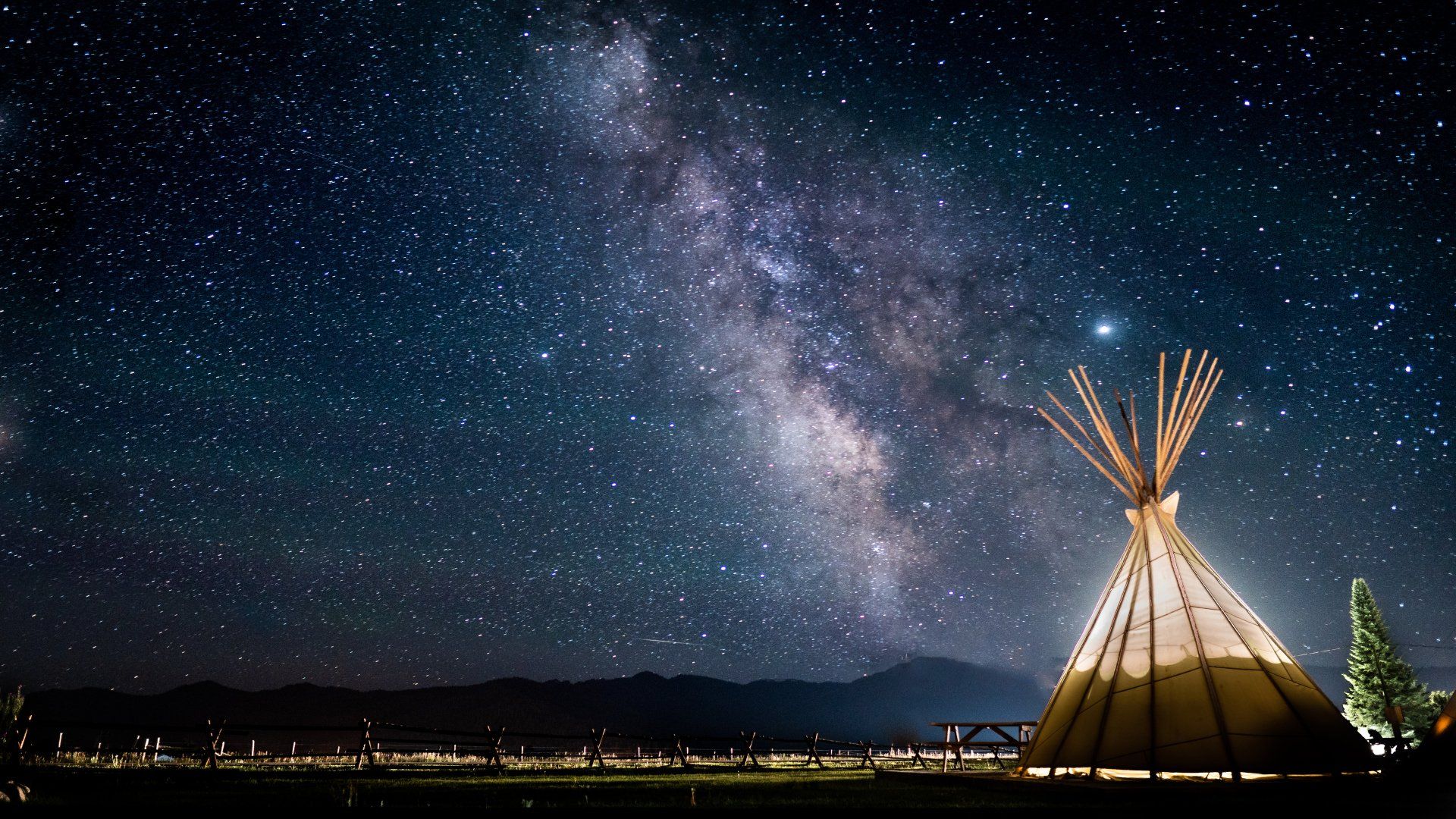You can't say that at all!
You can no longer use the word "Indian" in Canada. The same applies to "Eskimo." You must refer to the original inhabitants.
Of these original inhabitants, of course, only the descendants remain. This is a piece of sub-science where the facts become very vague.
There has been enormous influx of original inhabitants and colonists, or whatever other Canadians are now called. The percentage of this influx is carefully considered so that some dare to claim a certain degree of descent.
In Canada, the term "native" is currently popularly used for this. What exactly that term means and what rights it confers, no one really knows.

Canada's Native Americans no longer live in teepees and igloos. They have become Westernized.
Some, in Canada, have demonstrated their descent from the original inhabitants of the country. This could potentially lead to interesting rights.
Education is often available at a reduced cost, housing can sometimes be arranged, fishing rights can be enforced, and vast tracts of land are made available. Those living on a reserve are exempt from all kinds of taxes.
Here and there, the stock market also opens in other ways, such as for free electricity, transportation facilities, construction, cultural institutions, health facilities, and so on.
Even today, the colonists and their descendants ("white men") are being fought against by the descendants of the original inhabitants ("our people") and are being held accountable for all kinds of perceived duties.
The original agreements with the tribes, often made in the 19th century, are no longer valid. There are endless negotiations over rights, achievements, and especially money.
Many more recent immigrants look at this with disapproval. We didn't do anything wrong, did we? Why should we now have to pay for the misery of the past?
It's simply unlikely that this problem will ever be solved. However, a lot of time and, of course, money is being spent on it.
Race or ancestry—or both?
Alarming questions arise. What ancestry or racial background does a person have, and to what extent does that matter?
To what extent is descent, partial descent, or racial mixing actually relevant?
Many immigrants shudder at these kinds of issues. Recent history has already seen many countries react angrily to these kinds of problems. Can they live with this? Can they ever find a solution?
But while you're at it, should people who came to Canada a hundred years ago (and their descendants) have more rights than people who came ten years ago?
Equal opportunities for all – could that perhaps be a consideration?
Unfortunately, the Indian problem is also accompanied by significant poverty. Feel free to read more about it here (link).





